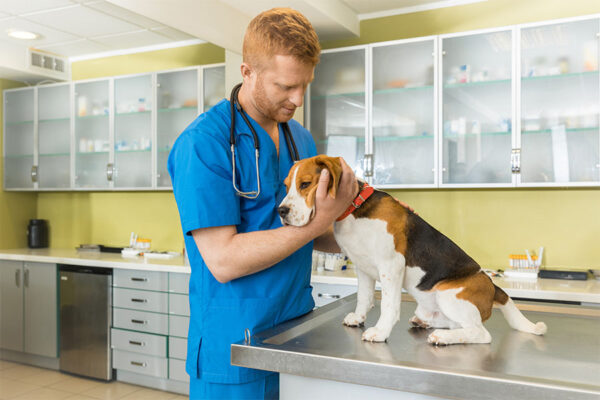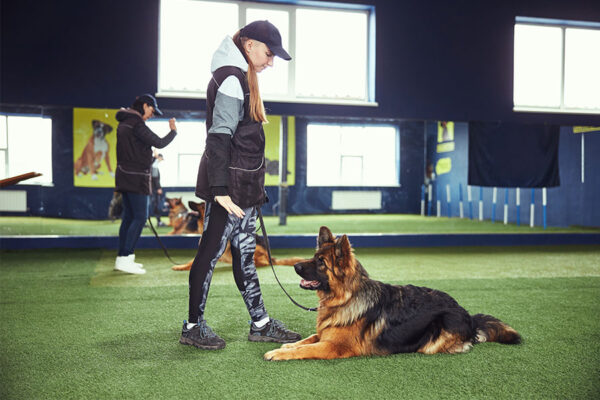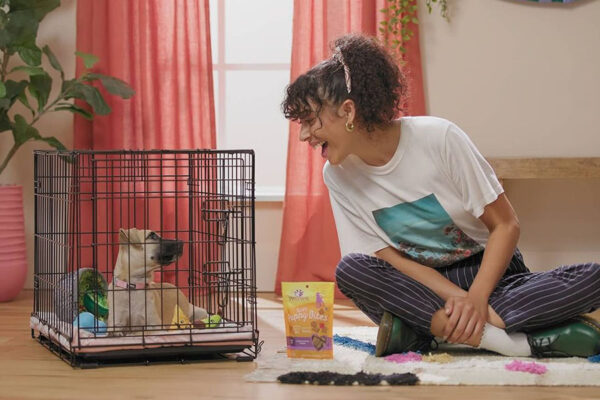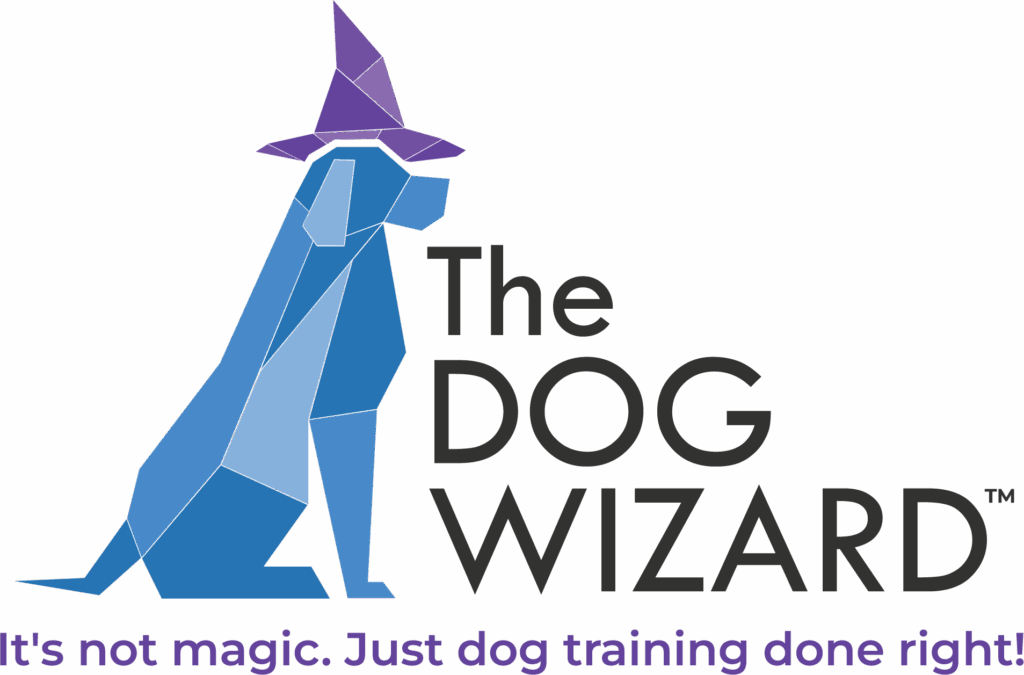Separation anxiety is a common issue for dogs, and many dogs suffering from it develop behavior problems, such as destructive behavior or incessant whining and barking when you leave home. There is hope for improvement, though. With help, your anxious dog can learn how to handle being left alone for short periods of time. Our dog separation anxiety training can help area pet owners teach their dogs to be more self-confident and secure. Professional dog trainers at The Dog Wizard will provide in-depth knowledge about treating separation anxiety in dogs.

Why Dogs Develop Separation Anxiety
Dogs are natural pack animals, so it’s not unusual for them to feel nervous or upset when a member of their pack goes missing. Most dogs learn their owner’s routine and come to understand that the missing pack member will return soon, but some have trouble trusting that this will be the case. Some reasons a dog might develop separation anxiety include:
- Frequently being left alone for long periods of time
- Being taken from the mother too young (removed earlier than about 7 weeks old)
- Maternal dog death that causes the puppies to be raised by humans without a mother dog around
- Experiencing abrupt schedule changes or frequent unstable living conditions, such as being at a shelter or being repeatedly rehomed
- Excessive handling as a puppy that prevents the dog from learning independence
- Suffering from a traumatic event, such as the death of an owner, a family member or another pet in the household
- Going from a neglectful situation to a loving owner who showers the dog with attention
A dog that has been subjected to neglect and abandonment may be especially prone to canine separation anxiety. Finding a human they trust can cause rescue dogs to latch on too strongly. Because rescue dogs often have other issues, such as nipping or aggression, a training plan for rescue pets should address the particular behavior issues of each individual dog.

Signs of Separation Anxiety in Dogs
It can sometimes be difficult to distinguish separation anxiety from other causes of dog misbehavior. In some cases, a dog has simply learned that bad behavior gets attention, even if it is negative attention. Other dogs might be bored when left alone and turn to destructive behaviors to alleviate their boredom. True anxiety causes your dog real stress. If you aren’t sure whether your dog is experiencing separation anxiety, here are some common signs:
- Anxious behaviors like constant pacing and panting when you’re out of sight
- Destructive behavior when you’re not home
- Digging and scratching at doors or windows when you’re outside
- Whining, howling and excessive barking when you leave home
- Escape attempts — successful or not — when left home alone
- Urinating and defecating indoors when you’re not home, particularly if your dog is already housebroken otherwise
- Following you from room to room when you’re at home
- Expressing distress when you give signs that you’re leaving, such as picking up car keys or putting on shoes
- Acting over excited when you return home after work or school
Keep in mind that separation anxiety in dogs is typically a panic response, not intentional bad behavior. The behavior issues displayed by an anxious dog are not conscious or purposeful. Your dog isn’t trying to express anger but is panicking over the idea that you might never return.

Helping Your Dog Overcome Separation Anxiety
Learning how to deal with a dog with separation anxiety can be difficult and sometimes frustrating. Fortunately, dogs with separation anxiety can overcome their issues and become more self-confident. Because these types of dog behavior problems are caused by fear, the key to solving them is to address the underlying nervousness. Behavior modification can only happen once your dog feels comfortable about being left alone.
A training program that builds your dog’s self-confidence and reinforces the bond between you and your pet helps your new puppy or dog overcome fears and learn how to cope with everyday stress that can help treat separation anxiety.
The training methods used by The Dog Wizard for pets with separation anxiety utilize a balanced approach to help dogs understand they can make better decisions. Rewarding your dog for being good gives your canine companion the incentive to continue acting that way.
Group training sessions give dogs one-on-one time with their owners and also help improve socialization. Being around other dogs lets your canine companion see how good dogs behave. Private lessons offer more personalized training. The right class for you depends on how severe your dog’s separation anxiety is and the specific behavior issues your dog exhibits.

Dog Separation Anxiety Training at Home
Overcoming separation anxiety in dogs requires both dog obedience training classes and at-home follow-up. Changing your dog’s behavior might also mean changing your own habits. Creating a regular routine for your dog to rely on helps your pet feel secure. Some things you can do at home to help your new dog feel more comfortable alone include:
- Leaving a piece of clothing or blanket that smells like you with your dog when you have to leave home
- Ignoring your dog for a few minutes when you first get home before transitioning into calm petting to emphasize that leaving and coming back is a normal occurrence, not a cause for overexcitement
- Maintaining a consistent schedule so your dog knows when you’ll return and can trust that you’ll be back at the same time each day
- Providing a safe, enjoyable place for your dog to stay while you’re gone, such as a room with a dog bed and some toys
- Leaving your dog with a friend or having someone check in on your dog if you’re gone for long periods of time each day to reduce time spent alone
If you’re searching for dog training to help ease your pet’s separation anxiety and eliminate unwanted behaviors, training classes from The Dog Wizard give puppies and dogs the skills they need to become the best dogs they can be. Dog owners can also continue to bring their canine companion to weekly follow-up classes after attending a Dog Wizard group class to help reinforce the things their dog learned. Contact us today at The Dog Wizard to learn more about our dog training services and how we can help you manage your dog’s separation anxiety.











